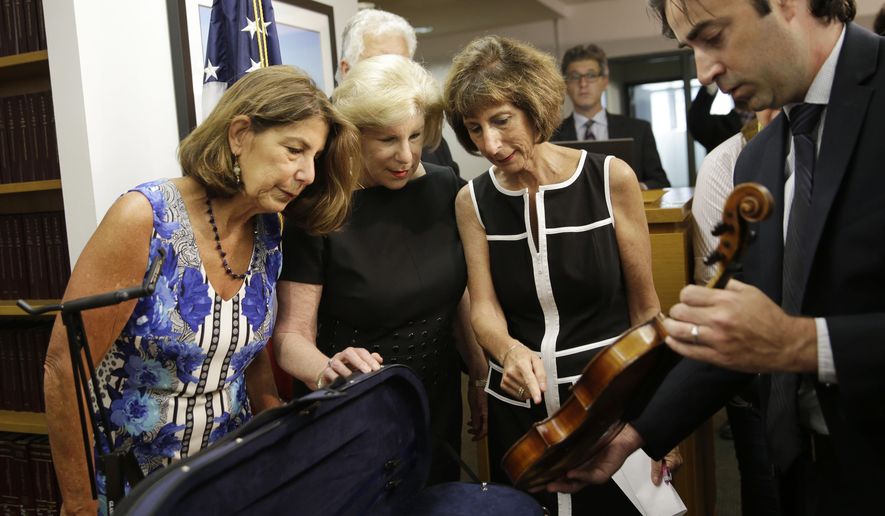A Stradivarius violin stolen four decades ago from the virtuoso Roman Totenberg and returned to his family by a federal prosecutor came alive again - at the crime scene.
Nineteen-year-old star violinist Nathan Meltzer revived the prized instrument of the late Polish-born musician on Friday evening at a public concert in Cambridge, Massachusetts. He played the same music as Totenberg had minutes before his Stradivarius disappeared one night in 1980. The thief was a former student, and the violin was eventually found in a California attic.
Recovered by the FBI, it was returned to Totenberg’s three daughters four years ago by the U.S. Attorney in Manhattan at the time, Preet Bharara.
“Our father would have been so pleased to hear Nathan, a gifted young violinist, breathe life back into the violin,” said Jill Totenberg, a New York media strategist who attended the concert with Nina, a National Public Radio legal affairs correspondent in Washington, and Amy, a federal judge in Atlanta.
“I felt my father was in that hall listening and smiling,” said Jill.
Roman Totenberg didn’t live to see his instrument again; he died in 2012 at the age of 101. When anyone would ask the Boston University music professor if he thought his violin would ever be found, he said, according to Nina, “After I have kicked the bucket.”
Likely worth millions of dollars, though its value has not been disclosed, the instrument made in Italy by Antonio Stradivari in 1734 is now on long-term loan to Meltzer, who is taking it around the world as he concertizes. Meltzer studies at The Juilliard School in New York with the famed Itzhak Perlman.
In Cambridge, at a performance titled “Homecoming,” Meltzer offered an audience seated in a circle around him the music Totenberg last played on what he called his “musical partner” that he would never see again: pieces by Bach, Beethoven, the Hungarian composer Bela Bartok and the Frenchman Cesar Franck. The soloist ended with music by Totenberg’s fellow native Poles, composers Karol Szymanowski and Henryk Wieniawski.




Please read our comment policy before commenting.